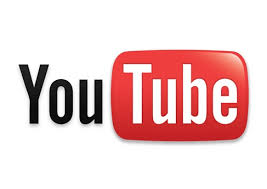The technology section of the LA Times released a very interesting post recently. It explains how the Guggenheim is going to open an exhibit of contemporary art featuring YouTube videos as its attraction. I found this interesting because I would have never assumed that YouTube videos were "art". I am a big fan of YouTube, I spend lots of time mindlessly surfing through random videos and laughing at the funny stuff people do, but do I consider them art? Probably not.
The article explains the reason for the exhibit. "Since the 1970s, video has been an established medium," stated the chief curator at the museum. It went on to tell that as a medium people are expressing work on it as an outlet of art. This doesn't mean that all YouTube videos are art- there are requirements to be considered. Especially for this exhibit. To make sure that the pieces for the exhibit were considered “art” the Guggenheim opened to submissions. But they had to meet these requirements:
“1) Inner cohesion. "The piece stands alone as a work." The submissions ranged from 25 seconds to 9 minutes, 21 seconds.
2) Originality. "Most of us have a sense about things that look too derivative, meaning things that are so clearly influenced by something else." Unless the references to other work are deliberate, curators look for videos that are fresh, either in the concept or the aesthetic.
3) Meaning and resonance. "We're looking for things with a message, it can be political or social. There are also videos with personal statements, which is equally valid."
4) Videos that represent the unique nature of the medium. "The videos we saw really look at the DNA of the medium. The sheer abundance of online video and use of it by both the art community and everybody else makes it different. You don’t have to take it seriously, because it’s not all good. But it’s relevant."
5) Aesthetics. "We look for things that are both poetic, universal and personalizable. (We’re) not going to say something is art or not art. We can say whether it’s good or not."
Here is one of the videos that will be featured:http://www.youtube.com/watch?v=jmR0V6s3NKk&feature=player_embedded#!
